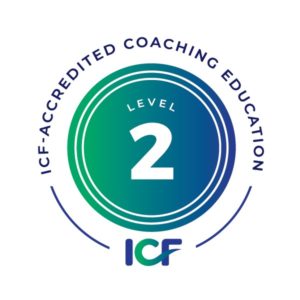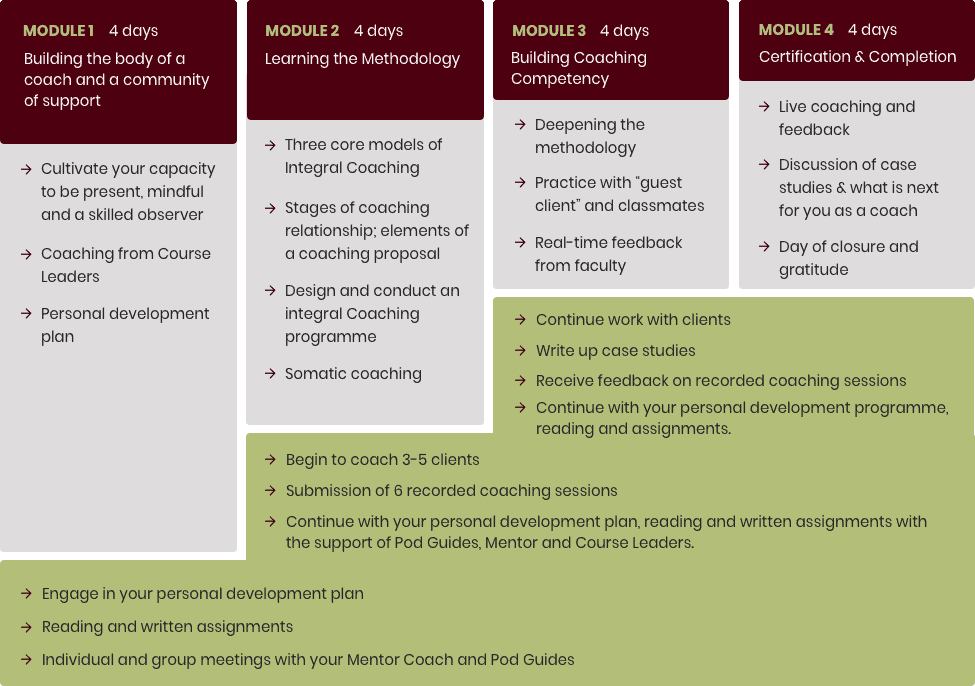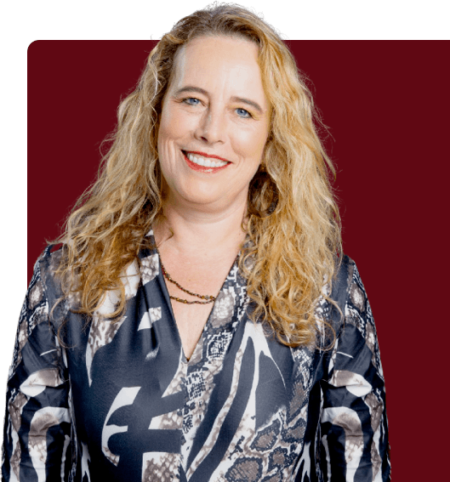The Professional Coaching Course (PCC) is designed in collaboration with one of the leading coaching schools in the United States – New Ventures West (NVW). The course is an International Coach Federation (ICF) accredited course and is being run in partnership by the Centre for Coaching, (based at the University of Cape Town’s Graduate School of Business) and NVW.
The year-long PCC is part of the 18-month programme offered by the Centre for Coaching that is made up of two courses targeted at different levels. The six-month course (CfD) can be completed separately and offers a stand-alone qualification; however, CfD and PCC are designed to work together as a unit over an 18-month period with ‘soak in’ time between each programme to allow information to beabsorbed and practiced.
It is important to emphasize that using our state-of-the art, groundbreaking, virtual face-to-face teaching approach means that we are able to give this PCC programme the same depth, experience and level of engagement that we do with our physical face-to-face programmes.
Prerequisite: before being accepted into the Professional Coaching Course (PCC), applicants must have completed the Coaching for Development (CfD) course











